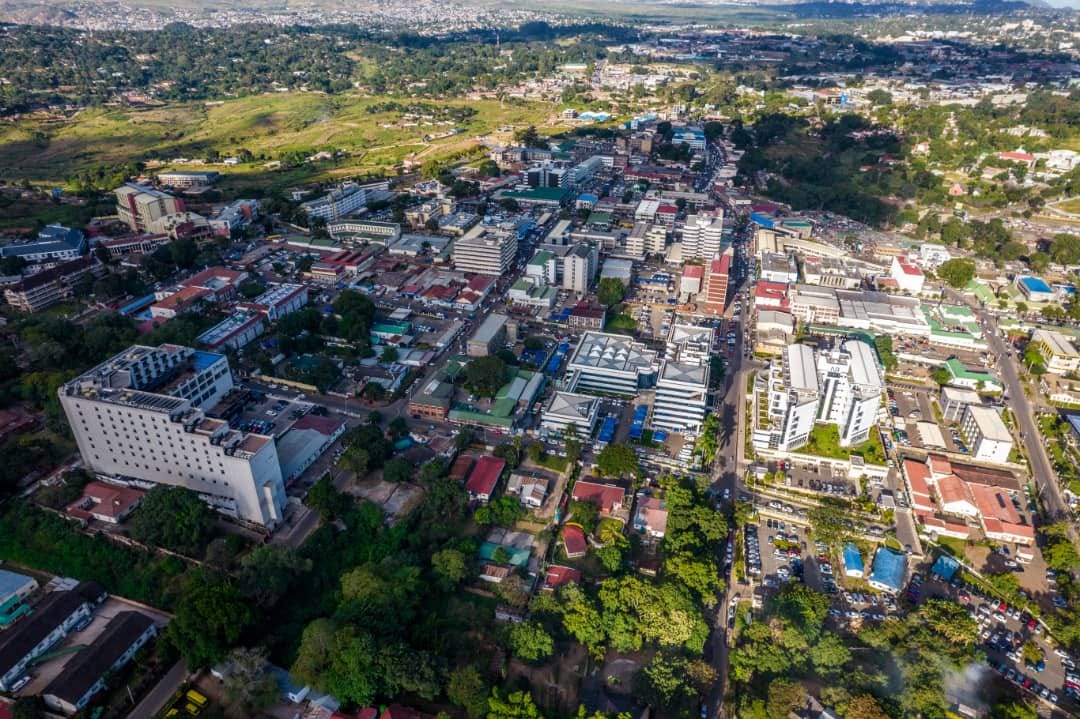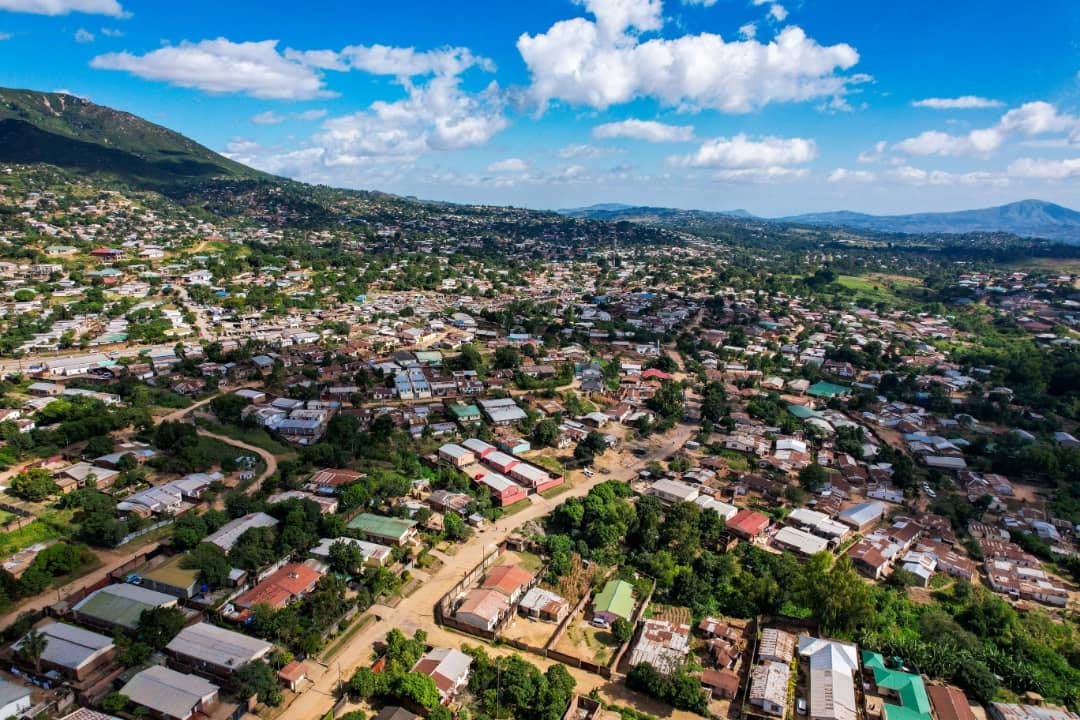Innocence Lost: Malawi's Streets Grapple with Rising Tide of Street Kids-Driven Crimes
As an estimated 15,000 children grapple with homelessness in Malawi, the surge in street-related crimes has ignited fear and exposed the vulnerability of citizens.
BLANTYRE, Malawi — The bustling streets of Malawi's commercial city, Blantyre-like most streets in the country’s cities-have become an unsettling battleground for citizens like Hanifa Iza, who recount harrowing encounters with notorious gangs of street children, writes Sumeya Issa.
One afternoon in February, Hanifa Iza experienced a heart-pounding encounter that left her traumatised.
Surrounded by a notorious gang of street kids, she was coerced into handing over her brand new phone along Total Energies Churchill Street.
This incident, illuminated by daylight, highlighted the distressing reality faced by Malawians due to the escalating street-related crimes.
"I was on a phone call walking in town, and the next thing I see, three boys in front of me are telling me to hand over my phone," elaborates Iza.
"One of them had a knife pointed at me. I was in complete shock. I just remember trembling with fear, and just like that, my phone was gone. It was one of the most terrifying moments of my life."
Hanifa's account of fear and intimidation is not isolated.
As an estimated 15,000 children grapple with homelessness in Malawi, the surge in street-related crimes has ignited fear and exposed the vulnerability of citizens.
Street children in Malawi, driven to the streets by poverty, family breakdowns, and the devastating impact of HIV/AIDS, have escalated their involvement in crimes.
Reports reveal that children often carry sharp objects, such as knives and razor blades, resorting to intimidation and attacks on unsuspecting pedestrians.
Fyson Kotiya, a domestic worker based in Blantyre, recounted his own distressing experience.
While on his way to the bustling Limbe market one morning, he found himself surrounded by a group of street kids.
Their demand for money quickly escalated into threats, leaving Kotiya trembling and fearing for his safety.
Disturbingly, despite the public nature of the attack, bystanders remained passive, failing to intervene and leaving Kotiya to confront his attackers alone.
"So many people just stood there watching, others even walked past like nothing strange was happening. I was only rescued later by a friend and another group of guys in the market who stood up to the kids, and they left. I am not sure what would've happened if no one had intervened,” said Kotiya.
The involvement of street children in criminal activities is not a random phenomenon but rather a consequence of complex dynamics.
A local news investigation in 2019 shed light on the manipulation these children face.
Underground street gangs send them to steal, offering a semblance of protection in return.
However, these children are only given a fraction of the money they acquire, as influential gang leaders maintain control over their earnings.
"A 14-year-old beggar at City Mall in Lilongwe (whose identity is concealed on ethical grounds) disclosed that each beggar is required to submit his or her day’s collection to his head/ring-leader also known as gamba wamkulu," reveals the investigation.
"The gamba wamkulu then gives a fifth or 10th of the collections to the beggar as his or her wage for that day."
While some children are genuinely homeless and without guardians, others have homes yet still resort to the streets for survival.
In the highly populated peri-urban area of Bangwe in Blantyre township, resides Esther Nthambi ( not her real name), a mother to 17-year-old Austin ( real name withheld), who makes a living off the streets.
Nthambi is a single mother of eight children, including Austin.
"After my business collapsed, I was left helpless. My son goes to the streets to beg, and we wait for whatever small amount he makes that particular day from begging," Nthambi says.
"If Austin doesn't bring any money and there's no food in the house, we go hungry," said Nthambi, Austin's mother.
Austin's mother admits that she is not happy with her son being on the streets.
"Life there can be rough and dangerous," she said.
"He has been arrested a couple of times for crimes that probably the other kids committed and not him. The crimes he's picked up for are usually theft-related crimes, but I do not think he is a thief."
During our interview with Nthambi, Austin was seen returning home for a bath with about two other boys following him.
He is the tallest among them and seems to be in control.
Different social media news platforms have in the past few months been reporting on the many random attacks on innocent people, mainly in the cities of Blantyre and Limbe.
Reports indicate that street-connected children often carry sharp objects such as knives, razor blades, and sharp metal objects that are used to intimidate and attack people walking on the streets.
A resident who requested to remain anonymous said that working in town is becoming more terrifying by the day.
"You go to work literally watching your back," she said.
"These kids no longer care what time it is. People are being attacked in daylight, and it's so scary. We are all just walking, not knowing who's going to be attacked next. It's not a comfortable situation at all, and at this point, the government clearly needs to do something about this chaos because it is getting out of hand."
With street-related crimes on the increase in the country, there has still been no clear reaction from either the police or the government on the matter.
Malawians continue to fear for their safety and their lives.
Social media platforms buzz with reports of random attacks in cities like Blantyre and Limbe.
Concerned citizens, such as Amina Dickson, spoke of the need for government intervention to quell the escalating chaos.
Protasio Jedidiah, a young Malawian philanthropist whose work includes rescuing street-connected children, said there is an urgent need for more vigilance from the government and relevant authorities.
He added that the lack of resources in children's rehabilitation centres is another major challenge for Malawi.
"There are barely any reliable resources to help street children who are taken into juvenile or rehabilitation centres once they are apprehended for a crime," Jedidiah said.
"Efforts by the government have proven ineffective."
Victor Chipofya, a political analyst, criticised the nation's shortcomings in addressing the issue.
Chipofya adds that it is necessary to hold these children and young adults accountable, as stipulated by the laws of Malawi.
As the shadows of these crimes cast a pall over the nation's sense of security, the silent outcry from victims and fearful citizens is undeniable.
The question remains: how long can Malawi's government and relevant authorities remain silent as citizens endure these brutal attacks?
The nation's unity and peace hang in the balance, urging swift and decisive action for the safety of its people.


